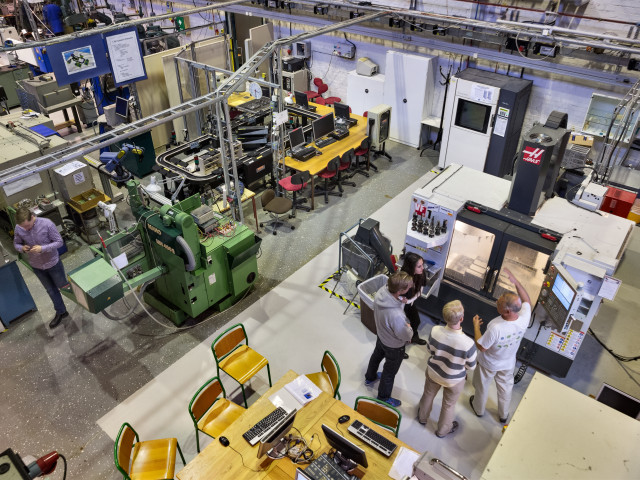The thesis is one part of deeper studies within the knowledge field on second level, in order to fulfil the demands for a first-year master thesis. The thesis should be carried out within the knowledge field of the education programme. The thesis may be carried out within KTH or elsewhere. The student will be supervised by a supervisor, decided by KTH.
CH201X Degree Project in Technology, Work and Health 15.0 credits

Information per course offering
Choose semester and course offering to see current information and more about the course, such as course syllabus, study period, and application information.
Information for Spring 2026 Start 13 Jan 2026 single courses students
- Course location
KTH Flemingsberg
- Duration
- 13 Jan 2026 - 1 Jun 2026
- Periods
Spring 2026: P4 (7.5 hp), P3 (7.5 hp)
- Pace of study
50%
- Application code
10329
- Form of study
Distance Daytime
- Language of instruction
Swedish
- Course memo
- Course memo is not published
- Number of places
1 - 10
- Target group
- No information inserted
- Planned modular schedule
- [object Object]
- Schedule
- Schedule is not published
- Part of programme
- No information inserted
Please note that Students not located in Sweden may have problems attending a course at KTH.
You could meet obstacles if you're required to pay fees or if you do not have a Swedish Mobile BankID.
Contact
Course syllabus as PDF
Please note: all information from the Course syllabus is available on this page in an accessible format.
Course syllabus CH201X (Spring 2025–)Content and learning outcomes
Course contents
Intended learning outcomes
After passing the course, the student must:
- be able to apply relevant knowledge and abilities learned within the education, related to a specific problem
- within certain frames, even with limited information, individually analyse and discuss complex tasks and
- handle advanced issues within the field of knowledge
- show ability to reflect around, assess and criticize own and others scientific results
- be able to document and present the own work fulfilling high demands on structure, formalities and language
- show ability to identify needs of further knowledge and to take responsibility for further knowledge development
- Reflect on sustainable development in context to their topic.
Literature and preparations
Specific prerequisites
University education at first level comprising at least 180 credits in technical science, natural science, medical science or human resources management. In addition, at least 45 higher education credits in completed courses, of which 15 credits must be at advanced level in the main field of Technology and Health. The 45 credits must include courses corresponding to Working life and health 7.5 credits and Scientific methods in work environment and health 7.5 credits
Literature
Examination and completion
Grading scale
Examination
- XUPP - Degree assignment, 15.0 credits, grading scale: P, F
Based on recommendation from KTH’s coordinator for disabilities, the examiner will decide how to adapt an examination for students with documented disability.
The examiner may apply another examination format when re-examining individual students.
If the course is discontinued, students may request to be examined during the following two academic years.
Examiner
Ethical approach
- All members of a group are responsible for the group's work.
- In any assessment, every student shall honestly disclose any help received and sources used.
- In an oral assessment, every student shall be able to present and answer questions about the entire assignment and solution.